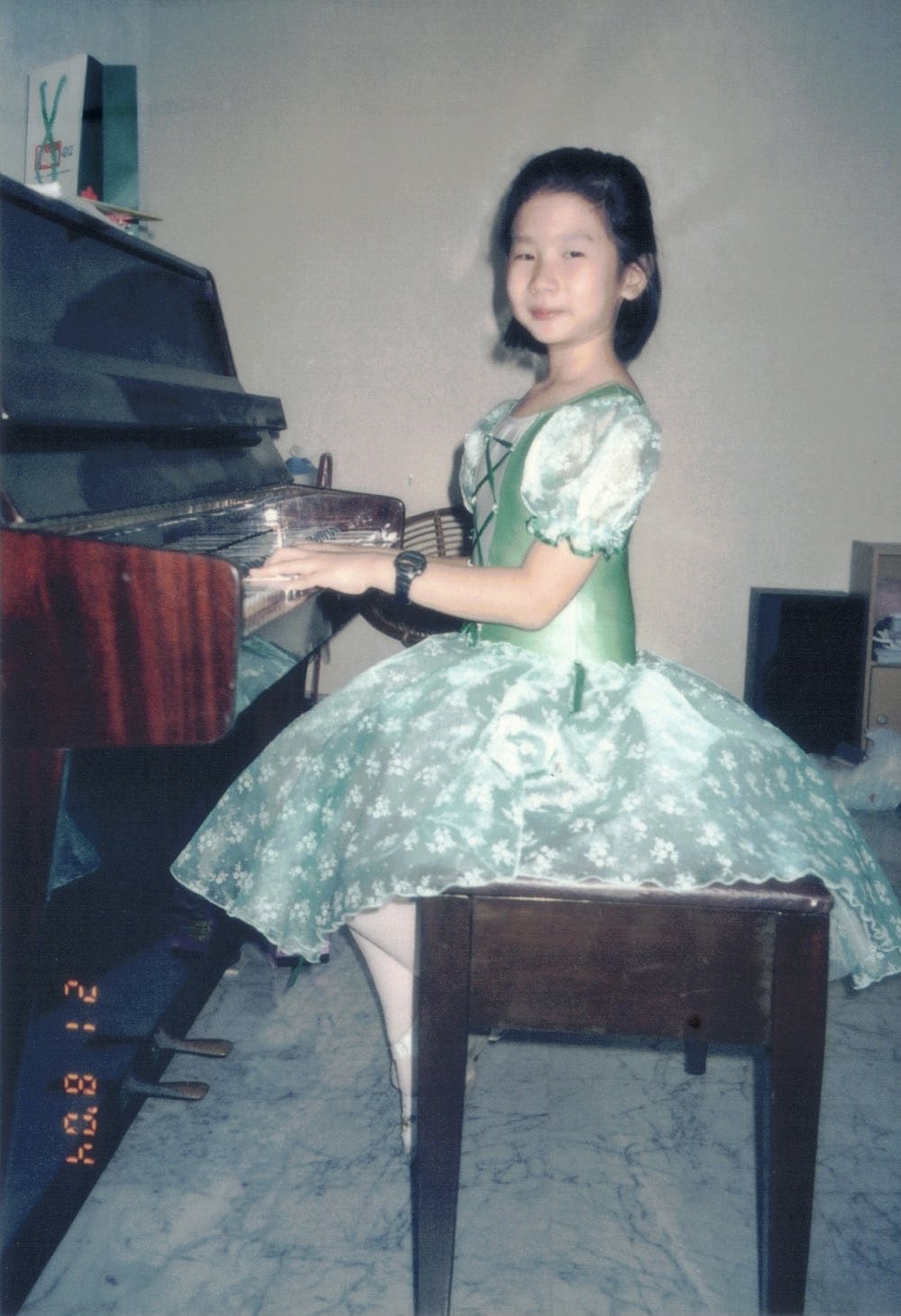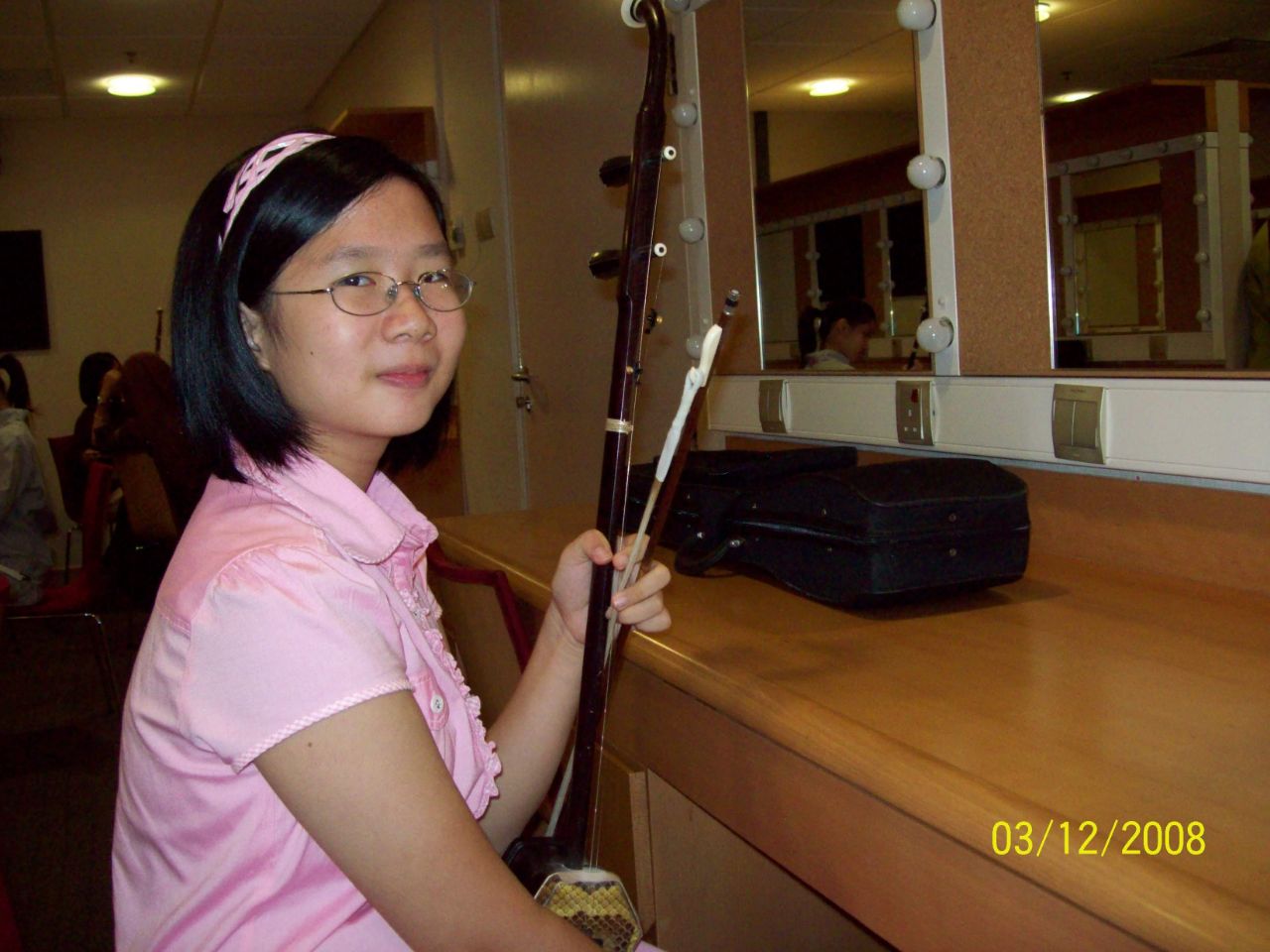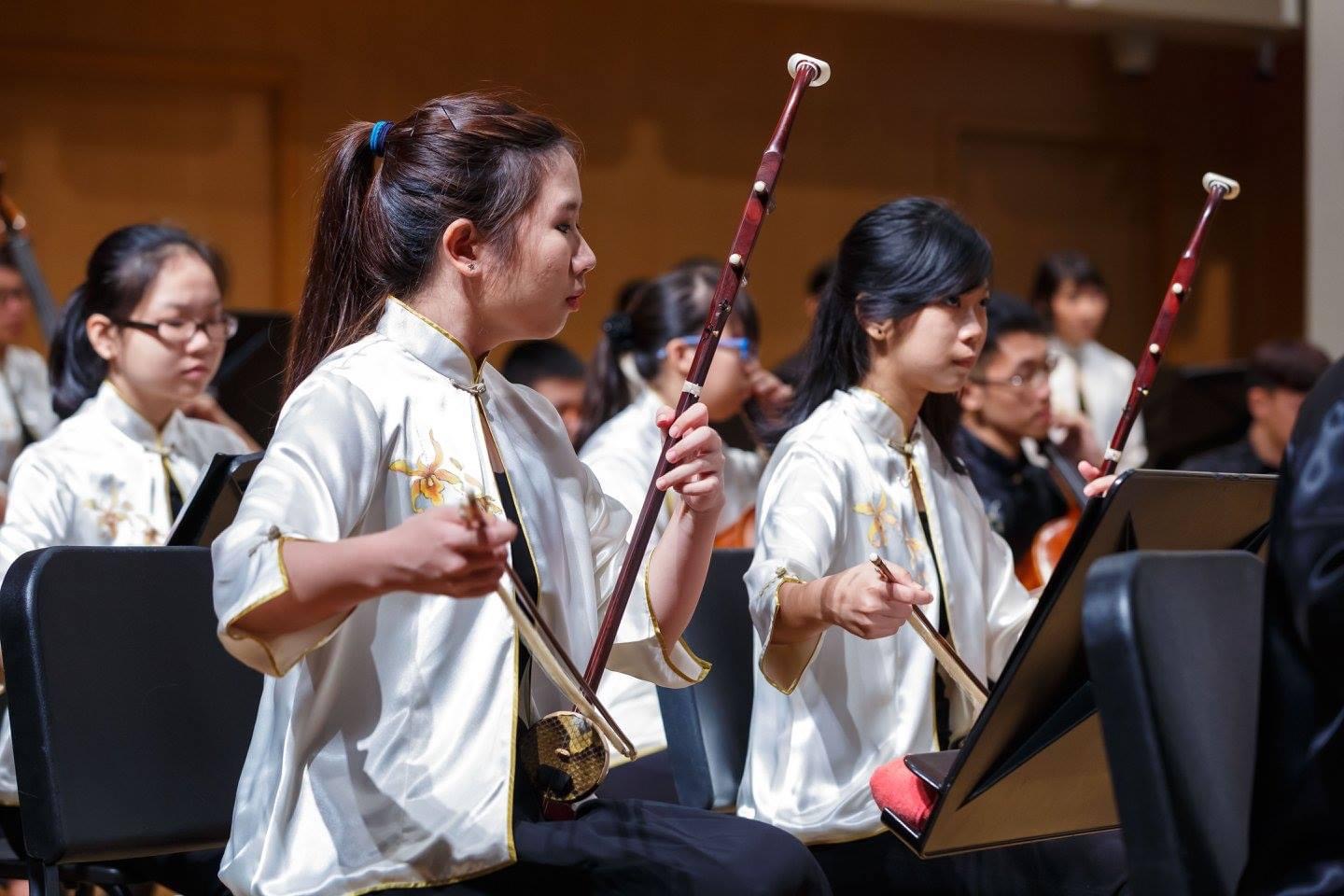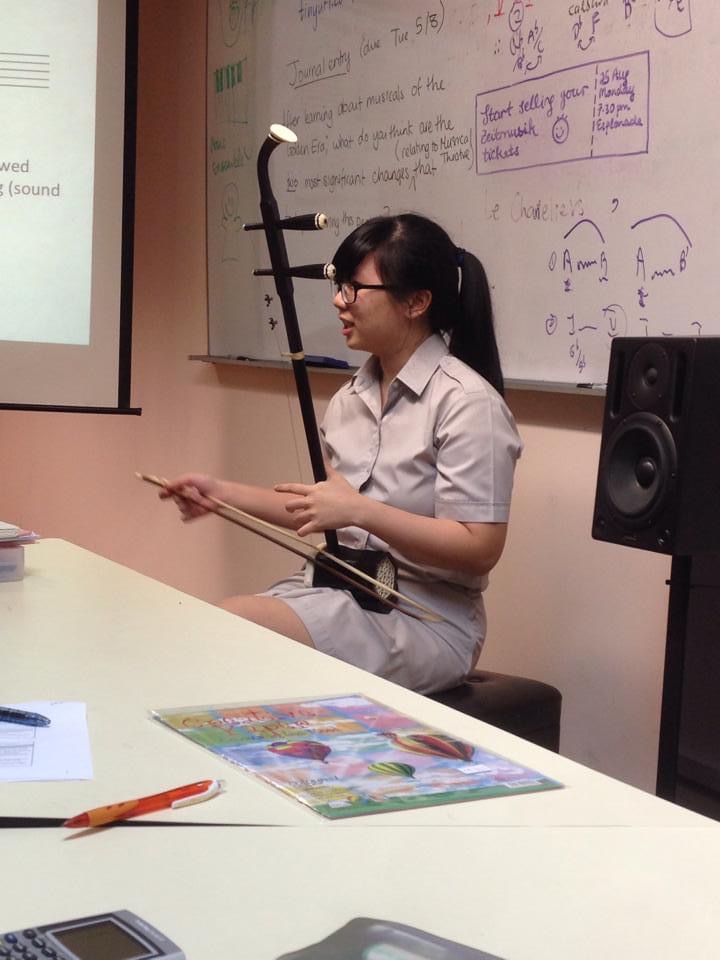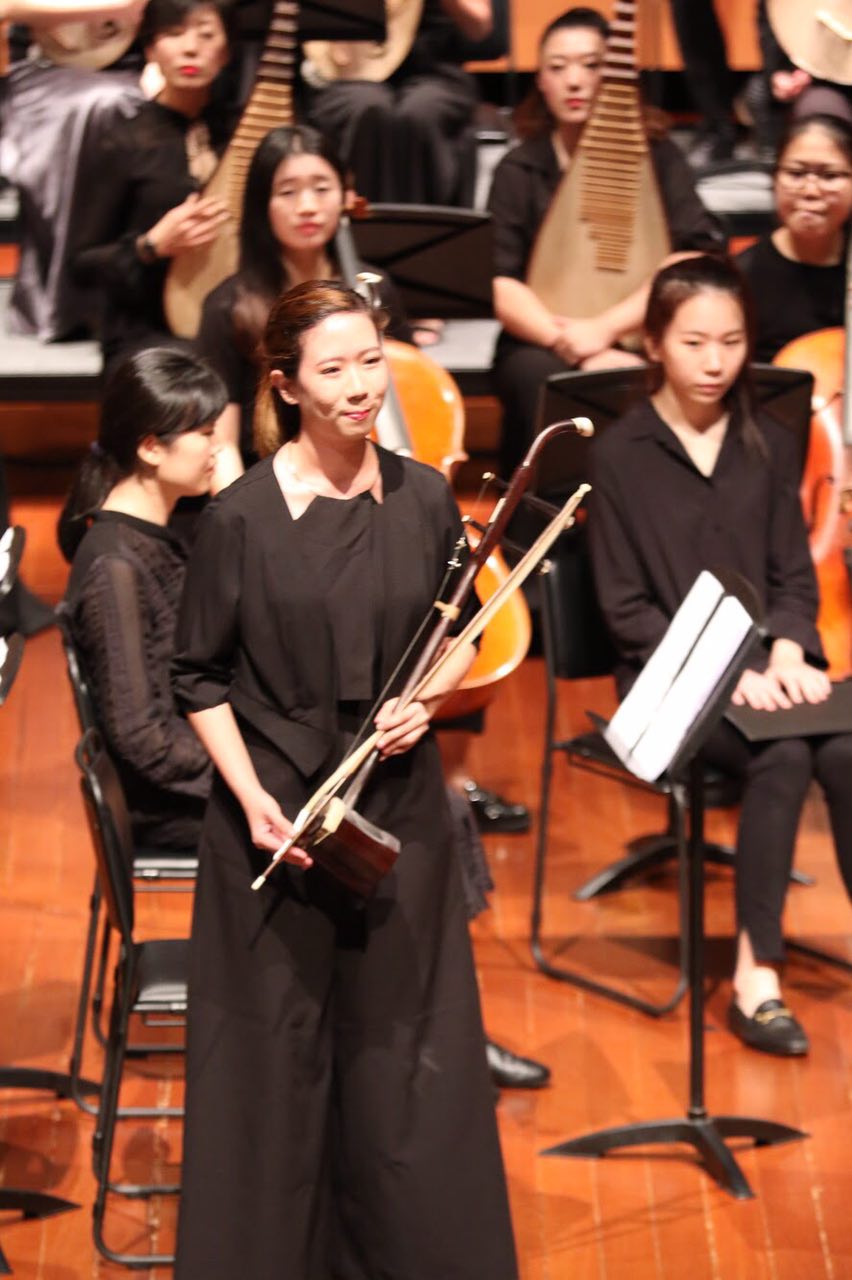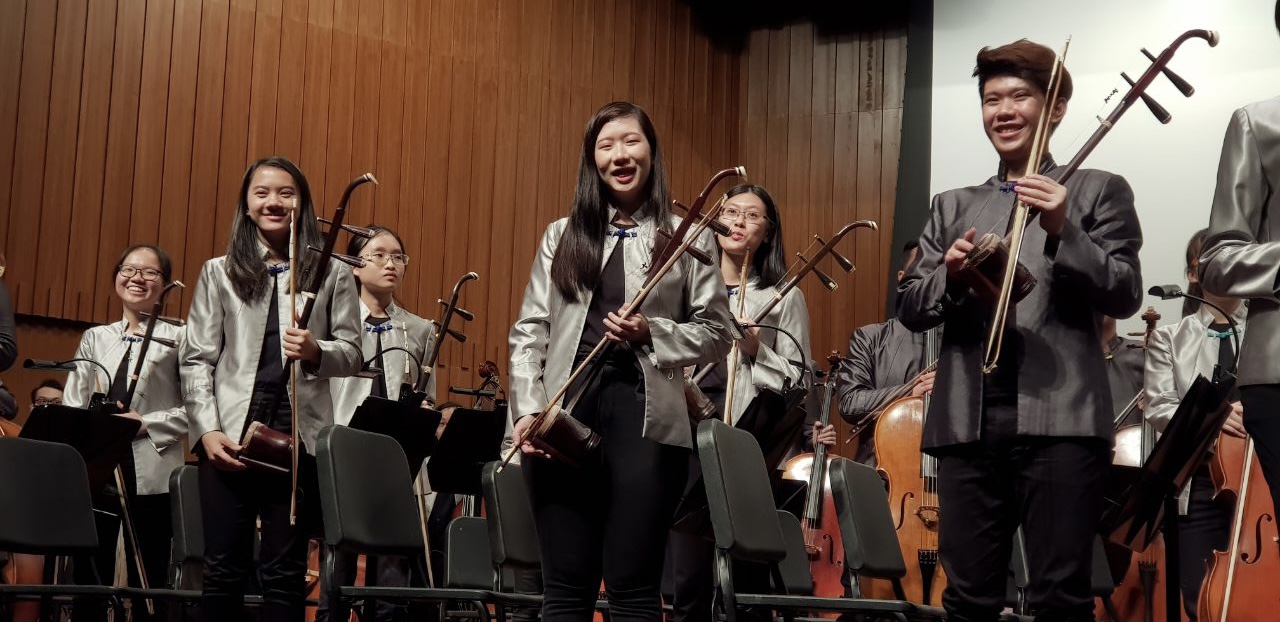SCO officially launched the blog on 6 July 2020, with our first blog post titled,” COVID-19 Phase 2: Lights on! Singapore Chinese Orchestra back to rehearsal after 91 days. The eye-catching photographs and text has garnered the attention of many followers and audience members. Since then, many of our SCO Musicians, staff and Friends of SCO also began to share their touching stories of affinity with SCO.
In our brand new SCO English series titled Music Diaries launched on 15 October 2020, SCO Huqin Musician Goh Cher Yen shares about his day as a stay-home dad during the COVID-19 circuit breaker period.
Today, Singapore Chinese Music Competition 2020’s very first Grand Category Champion Deborah Siok shares about her reflections taking part in the competition and her journey to bagging the top prize. More exciting content coming up, don’t miss them!
--
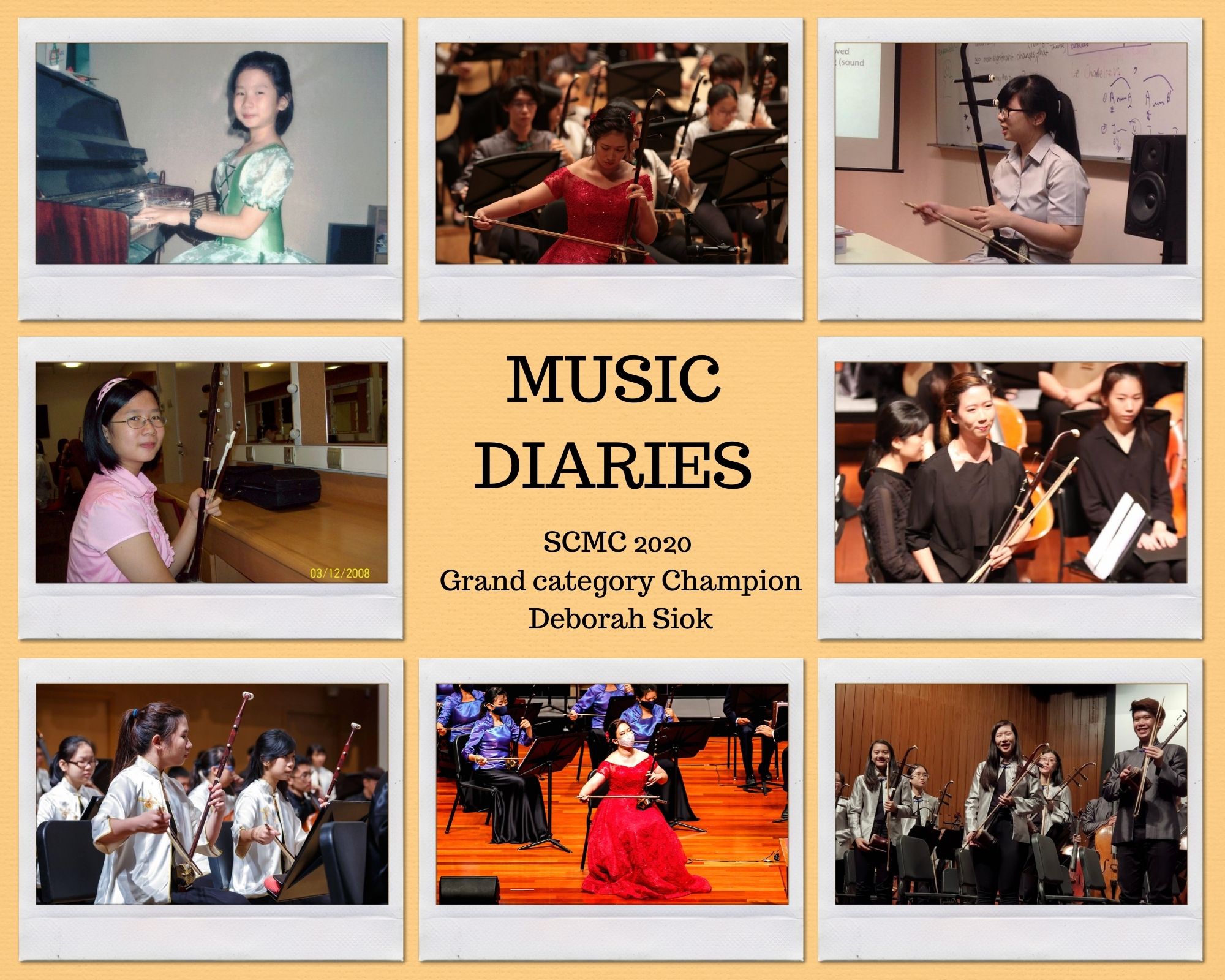
Reflections of First Grand Champion in SCMC 2020
Text and Pictures: Deborah Siok
“台上一分钟,台下十年功”. This is an old Chinese saying that translates to “a minute of stage is worth ten years of practice”, a saying that has resonated deeply within me ever since a conductor mentioned it during a rehearsal that I attended. It has taught me to respect the stage, to never be complacent and that there are no shortcuts when it comes to performing on stage, for it is a never-ending journey towards perfection.
Indeed, when it comes to competitions, things can get stressful, hearts and dreams can get broken, but I believe every competition is an opportunity to grow as you push yourself to explore your limits in your skill, and it always starts with wanting to perfect your craft with practice.
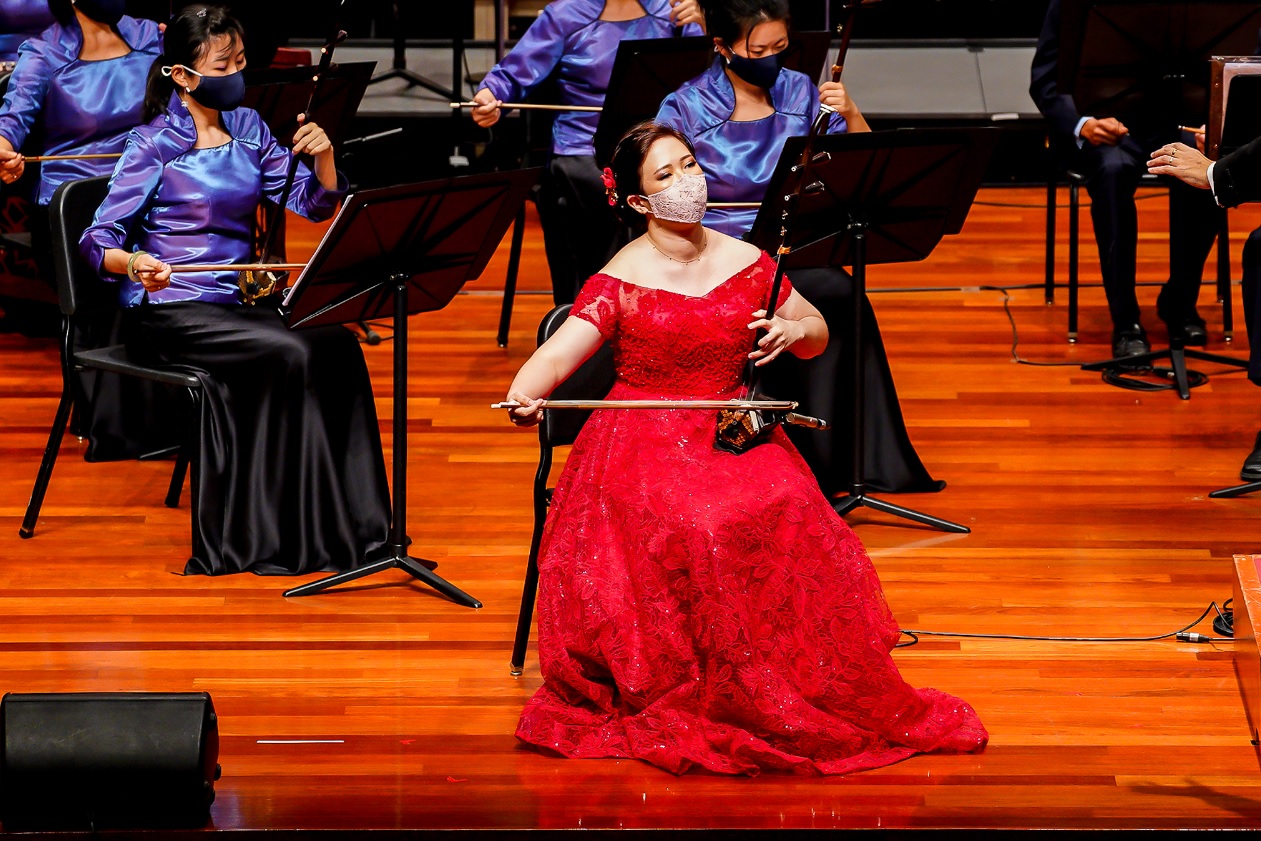
PHOTO: SINGAPORE CHINESE ORCHESTRA
SCMC Grand Category - The Stakes Were High
My journey in the Grand Category of the SCMC was a long and challenging one, which started with the submission of the preliminary video back in December 2019, exactly a year ago. When details of the competition were announced, everybody I knew was excited about the news of the newest addition to the competition, the Grand Category. The stakes were high, the repertoire and requirements were demanding and there were so many exciting new features to this new category, with the most attractive parts being that the finalists would get to perform a concerto with the SCO, and that there would only be one winner with a grand prize of $10,000.
Started formal piano lessons at 7 years old.
Test My Limits
In the past NCMC competitions organised by the NAC, first prize winners of each instrumental category could not compete in the same category again but for this Grand Category, anyone could participate in this category, even if they won first prize in previous competitions. This was what ultimately prompted me to join the competition this year, as I had won the Erhu Open Category in the 2018 NCMC and entering the Grand Category was a way for me to push myself to test my limits and to further improve on my playing. I decided back then that since this was the inaugural Grand Category, I should just give it a shot as there was really nothing to lose, and if I could practice hard enough to enter the finals, getting the rare chance to perform my favourite concerto with the SCO would be more than enough.
First National Chinese Music Competition (now rebranded as Singapore Chinese Music Competition) experience at the Esplanade’s Recital Studio in 2008.
2020 - Sailing On A Ship Without A Map
Of course, 2020 has not been the kindest year to everyone. The biggest challenge for me in preparing for this competition would be that Covid-19 happened, and that my morale and motivation to practice early on this year was significantly affected, as during the Circuit Breaker period I had my lessons with my teacher understandably put on hold for almost two months. During this time, I tried my best to practice as much as I could, but without the guidance of a teacher, I often felt like I was sailing on a ship without a map, and the uncertainty of the future—how my future would be affected and if the competition could even go on—constantly loomed in my mind, making me feel quite demoralised and reluctant to practice even. However, as time went by, I had to tell myself to trust in the future and that as long as the competition was not cancelled it was something relatively tangible for me to work towards and look forward to. It gave me an aim in the seemingly aimless period. I knew that I had to start preparing for the competition way ahead of time, and it would mean that I had to start on slow and consistent practice.
A member of the Singapore National Youth Chinese Orchestra since 2016.
Many People Asked - How Long Did I Practice For This Competition?
Many people have asked me how long I practiced in preparation for this competition. I really cannot give you a number, but I believe in consistent practice and practice of high quality rather than last-minute practice and/or practice of high quantity and low quality. This means my practice throughout this one year looked something like 2 to 3 hours of extremely focused practice every day as much as my work and commitments allowed, and more if I felt particularly motivated and inspired. How I practice is also specific, and because I was playing an extremely technically challenging piece for my semi-finals, I knew I had to be exceptionally well-practiced so that I would be comfortable when playing it. I feel that it is important to know how to practice so that each practice session is meaningful and effective, and there are many articles online where great musicians and masters share their tips on how to practice, which I highly recommend anyone who learns an instrument to read. I also find that it is important to do whatever intensive practice months ahead of performances such that in the one or two months prior to the performance there would be no need to over-exert yourself with practice and instead focus more on preparing yourself mentally.
Rehearsing and practicing for ‘A’ Levels H2 Music examinations.
Coming Off Stage, I Was Disappointed With my Performance
Winning the inaugural Grand Prize of the newly rebranded Singapore Chinese Music Competition has been probably the greatest honour and achievement of my life to date. Coming off the stage after my performance on the day of the finals, I was actually disappointed with my performance as I had felt that I had performed better during the rehearsals with the Singapore Chinese Orchestra just two days before, when there were no audience in the concert hall. Perhaps it was the reality of the situation on the day itself that this was the Grand Finals and that it was being live streamed across Singapore and the world that gave me some additional anxiety when performing, or the fact that due to the pandemic I really had not performed for a live audience in almost an entire year and seeing people in the audience seats again threw me off slightly. I did perform the best I could in that moment and although I feel that it could have been better, I am incredibly grateful and blessed to have been awarded the prize, and am immensely thankful to all the teachers, mentors and friends who have helped me along the way, for I could not have done this without them.
Concertmaster of NAFA Chinese Chamber Ensemble from 2016-2019.
Journey to becoming a Musician - So Much To Learn And Grow
As much as a competition is a way to benchmark one’s standards of a skill, the journey to becoming a musician is a never-ending one and I am acutely aware that I have so much more to learn. In the near future, I do hope to further my studies and hone my skills further in China, and my dream would be to be able to enter the Singapore Chinese Orchestra as a professional musician. I also hope to be able to contribute to the Chinese Music scene here in Singapore, by sharing and teaching my skill such that more people would come to love and appreciate Chinese Music and culture, thereby preserving this beautiful art. Competitions like the SCMC are great platforms to raise the standards of all young budding performers and music enthusiasts all across the nation as it drives everyone who participates to not only improve in their skills but also to learn discipline, tenacity and good sportsmanship.
Singapore National Youth Chinese Orchestra (SNYCO) performance.
Tips On Coping With Fear and Stage Fright
Nearer to the competition, it is natural for stress to kick in and that is when preparations turn to the more mental side for me. I have always battled nervousness and stage fright throughout my journey as a music student and performer, and I always try to calm my mind down whenever a big solo performance draws near. I happened to chance upon a Ted Talk a few years back, in which the professional rock climber Alex Honnold shared his story of how he overcame fear and achieved his remarkable “Free Solo”, an act in which he scaled a 3000-foot cliff without the use of ropes or safety equipment. I found that how he prepared for his phenomenal climb was similar to how a performer prepares for any major performance (but of course thankfully a performer does not have to face the pressure of a literal life-and-death situation). I would again encourage anyone who struggles with stage fright and fear in general to watch or listen to this talk as it greatly helped me to cope with fear.
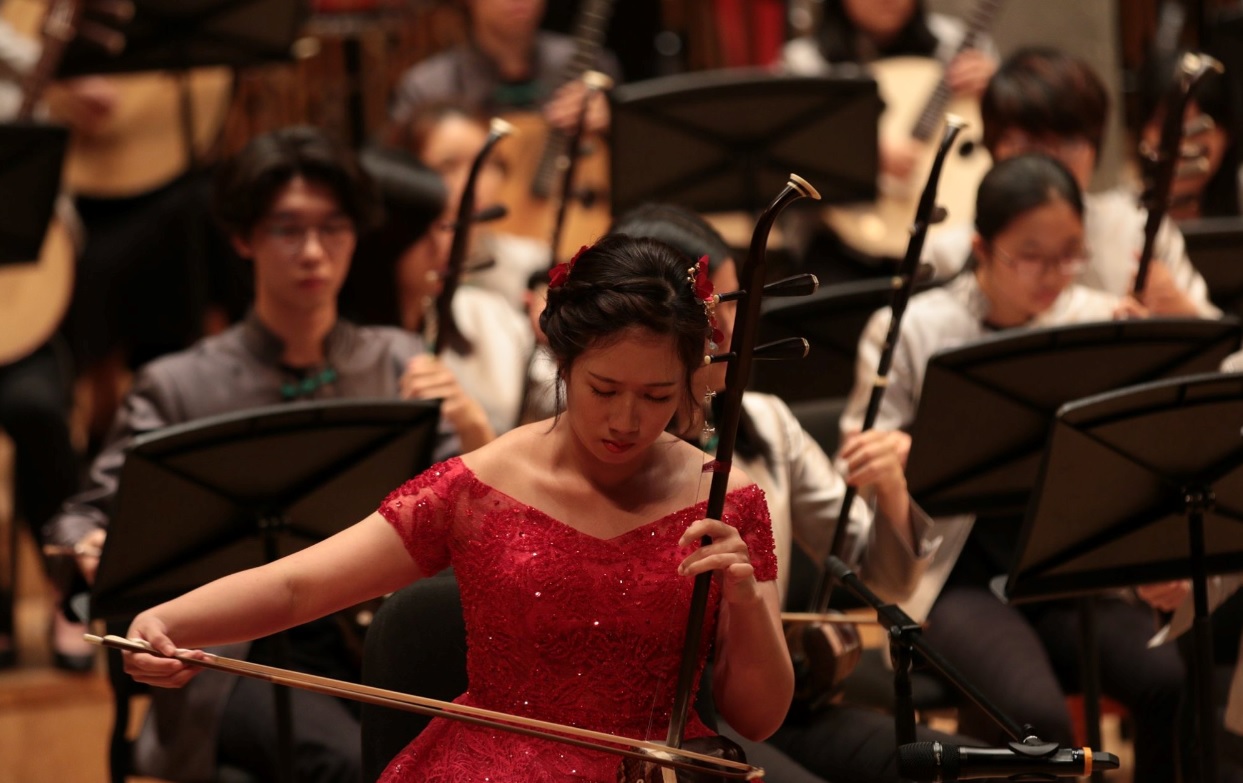
Performing Amannisha with SNYCO during the China tour in 2019.
Competition Tips - Over Preparing Helps
Also, I find that thinking through every possible scenario and situation which may cause additional stress and distractions greatly helps with my composure on the day itself, and these preparations should be dealt with prior to the competition. Some examples would be that for this competition, the moment I knew that masks would have to be worn when performing, I started to practice my instrument with a mask on and decided on which mask was the most comfortable to perform in. When going for the soundcheck at the competition venue, I took note of the height of the chair and the general temperature on stage, for if I know that if I am uncomfortable in any way when playing, it would be a huge distraction and would most likely hinder my performance. I tested out playing my pieces in the attire that I was planning to wear and noted if any of the clothes were uncomfortable to move in or if the material was particularly slippery such that my instrument may be unsteady. Of course, on the day itself, adrenaline runs high and anything could happen, but for me, thinking through all these details helps me reduce any unnecessary anxiety.
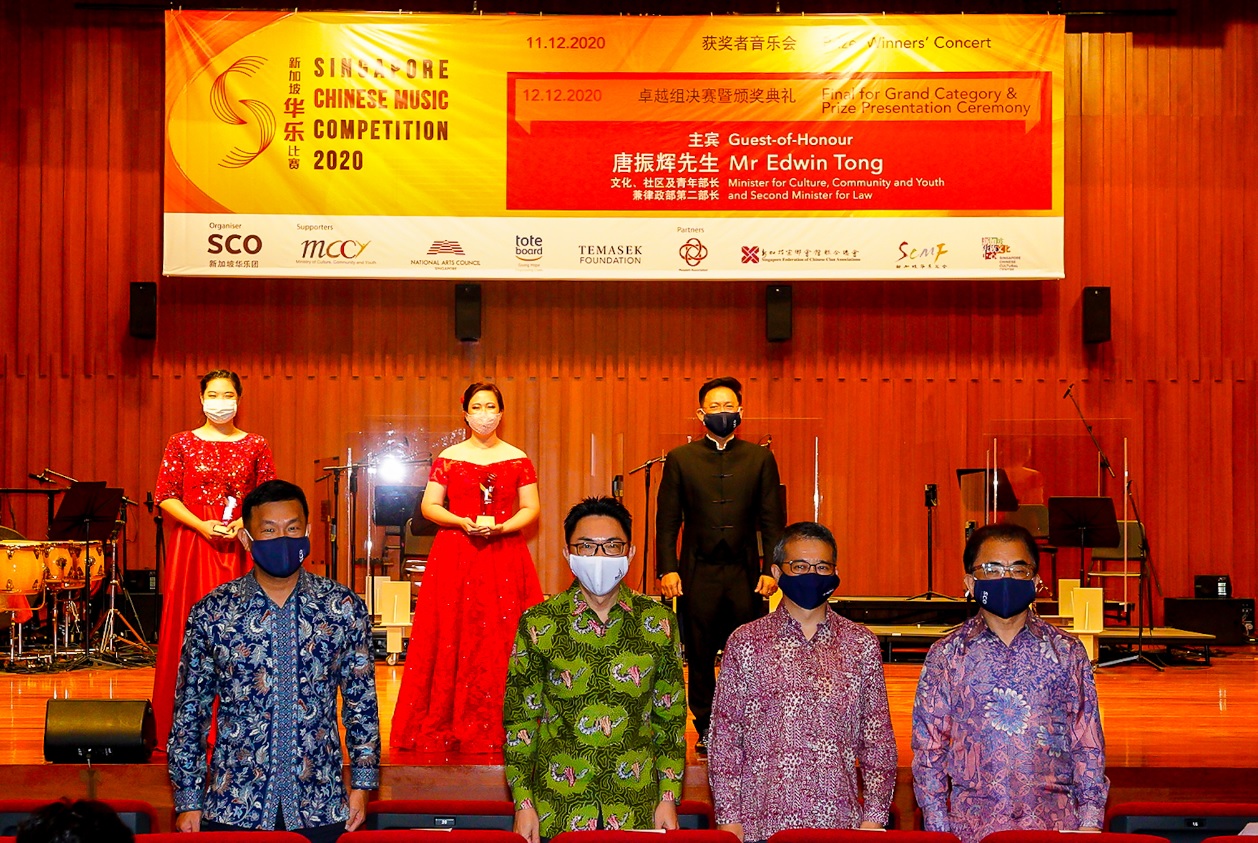
Prize Winners and guests at the grand finals of SCMC 2020. PHOTO: SINGAPORE CHINESE ORCHESTRA
New Discoveries Awaits
To anyone who is thinking about joining future competitions, I would encourage you to go for it, as you could potentially unveil new discoveries about yourself and learn and grow in ways that would not be possible otherwise.
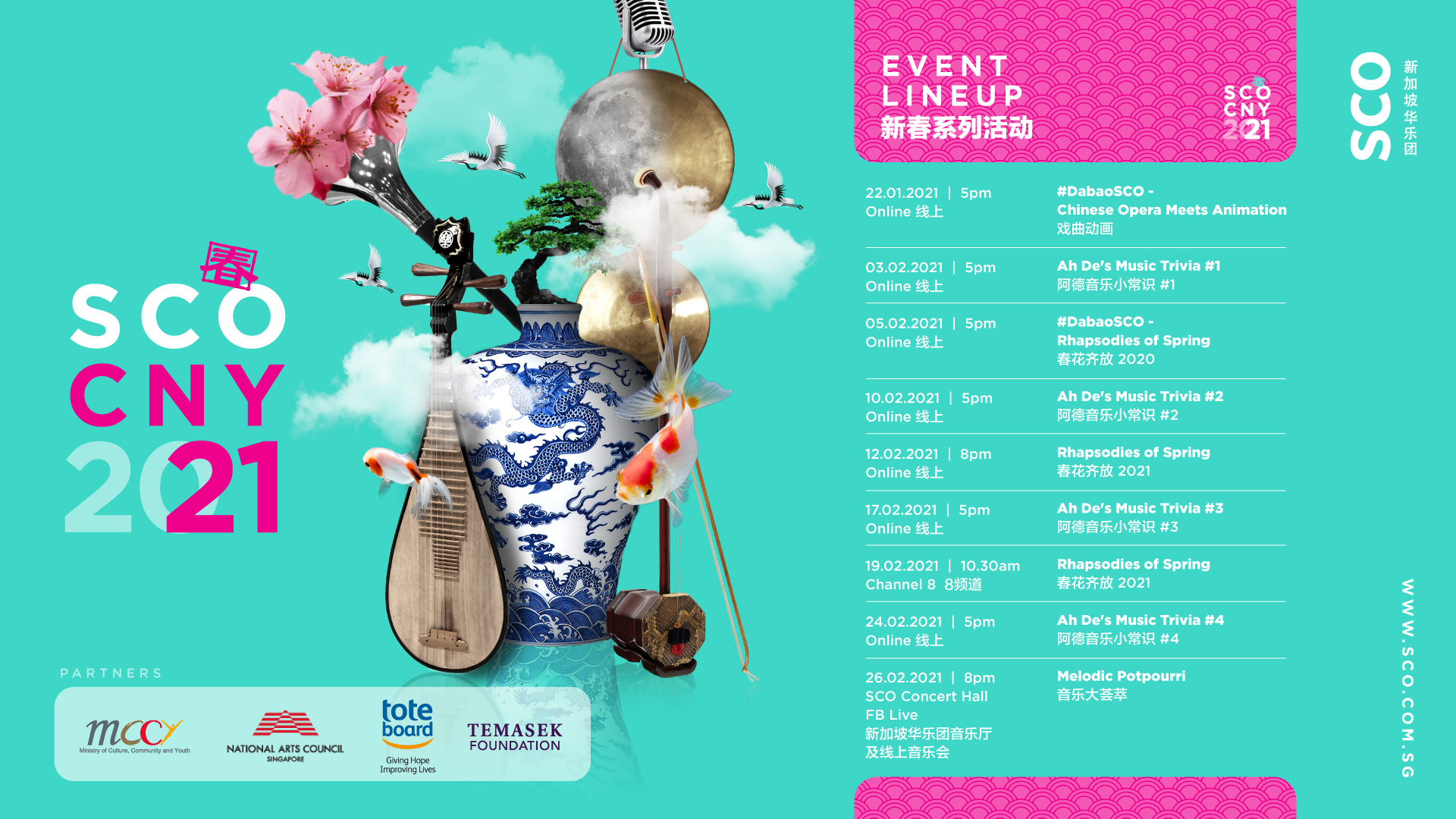
If you like our content, you can make a donation on our giving.sg page to support the arts.
Check out our social media channels for the latest updates and daily content!
Digital Series: #Roomformusic | #CO101 | Human Diaries | #DabaoSCO | #StaysafewithSNYCO | #SNYCOReplay
SCO: Facebook | Instagram | Youtube | Wechat | Website
SNYCO: Facebook | Instagram | Youtube | Website

![Music_Oasis_5_Apr_1354x800 image Music_Oasis_5_Apr_1354x800 [Music Diaries] Reflections of First Grand Champion in SCMC 2020](https://sco.com.sg/images/2025/Apr/Music_Oasis_5_Apr_1354x800.jpg)
![SCO_NAFA_Campus_2025_1354x800 image SCO_NAFA_Campus_2025_1354x800 [Music Diaries] Reflections of First Grand Champion in SCMC 2020](https://sco.com.sg/images/2025/Apr/SCO_NAFA_Campus_2025_1354x800.jpg)
![SCO_Feng_Ya_Song_Website_1354x800 image SCO_Feng_Ya_Song_Website_1354x800 [Music Diaries] Reflections of First Grand Champion in SCMC 2020](https://sco.com.sg/images/2025/Apr/SCO_Feng_Ya_Song_Website_1354x800.jpg)
